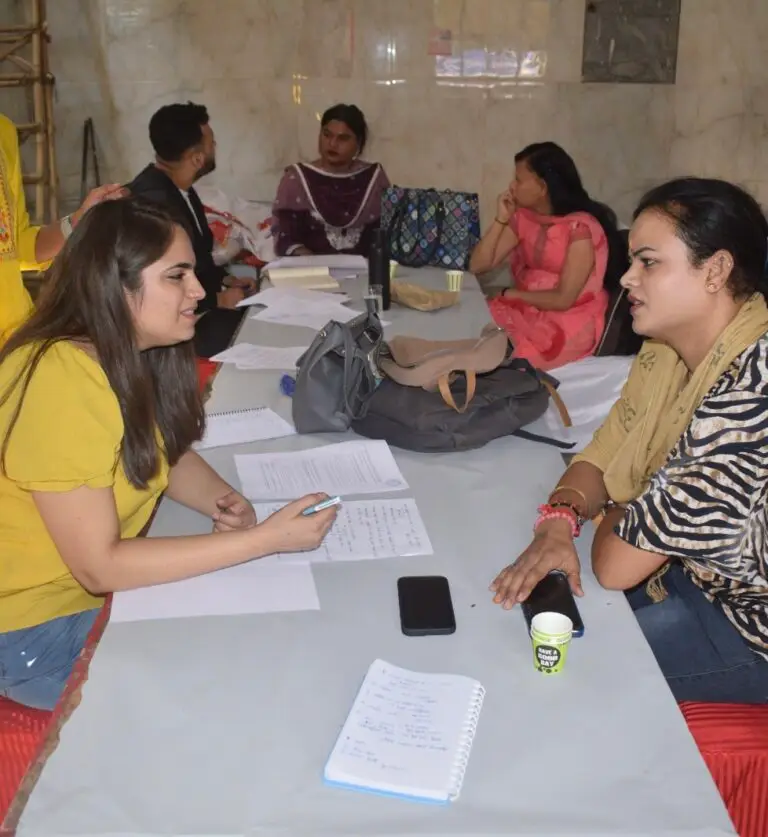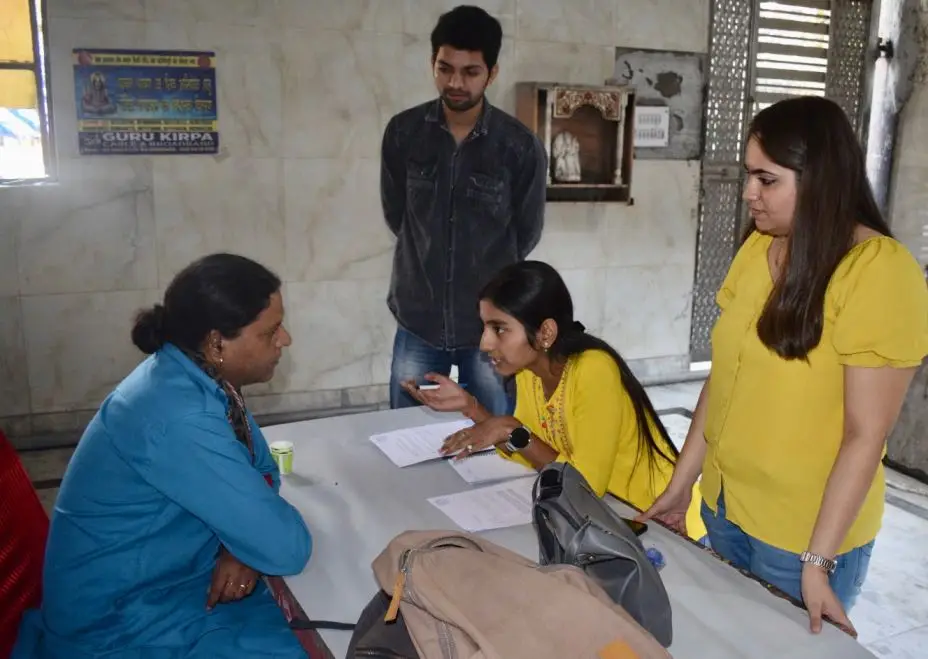INDEPENDENT RESEARCH GROUP ON
CLIMATE CHANGE & GENDER.
In February 2023, our co-founder, Dev Nagar, launched the Independent Working Group on Gender & Climate Change. This qualitative data research project aims to explore the intersections of climate change and gender, specifically focusing on the experiences transgender & intersex individuals of the socio-cultural gender minority communities, known as the Hijra Gharana. Since its inception, the project has been sustained through the dedicated efforts of our volunteer collaborators joining us from across India.
Notably, our team has successfully concluded the pilot research study in the NCT of Delhi region and is set to release our first report in August 2024. As we transition into the next phase, our focus shifts towards gathering insights from diverse regions across India. Our aim is to compile a comprehensive dataset encompassing various states, enhancing the reliability and depth of our findings.



ABOUT
Climate change has been shown to disproportionately impact marginalised & vulnerable communities, intersecting with our socio- political- economic identities. Gender is one such intersection that influences our experiences of dealing with climate change. Although much work has been done on understanding the gendered impact of climate change, it is pertinent to note that most of such studies have been done considering gender in the binary.
In this context, the experiences of individuals coming from socio-cultural gender minority groups have largely been overlooked in existing literature. Such individuals face unique challenges related to gender identity and expression, along with discrimination and marginalisation in society. With the impacts of climate change becoming more evident it may be relevant to explore how the increase in abnormal weather events, rising temperature & shrinking coastlines, can have potential to exacerbate the already vulnerable position of such communities.
India is an especially relevant context for this research given its vulnerability to climate crises and the existence of a unique socio-cultural gender and sexual minority community, which includes inter-alia transgender & intersex individuals. In South Asia, particularly in India, Bangladesh, and Pakistan, they are often referred to as the “third gender”. While the understanding of gender beyond binary, in south asian societies is still inchoate, the Hijras for long have struggled to gain recognition & rights, while being subject to the discrimination and apathy from all ends. Despite the legal recognition of the Hijras as the third gender category in India, prejudice against them remains pervasive.
The proposed research project aims to help fill the literature gap, in order to form more inclusive and equitable climate adaptation and mitigation strategies.
Explore the insights from the pilot program conducted by our research team in the Delhi NCR region by accessing the executive summary below.
www.climatexero.org/climate_gender/executivesummary/


